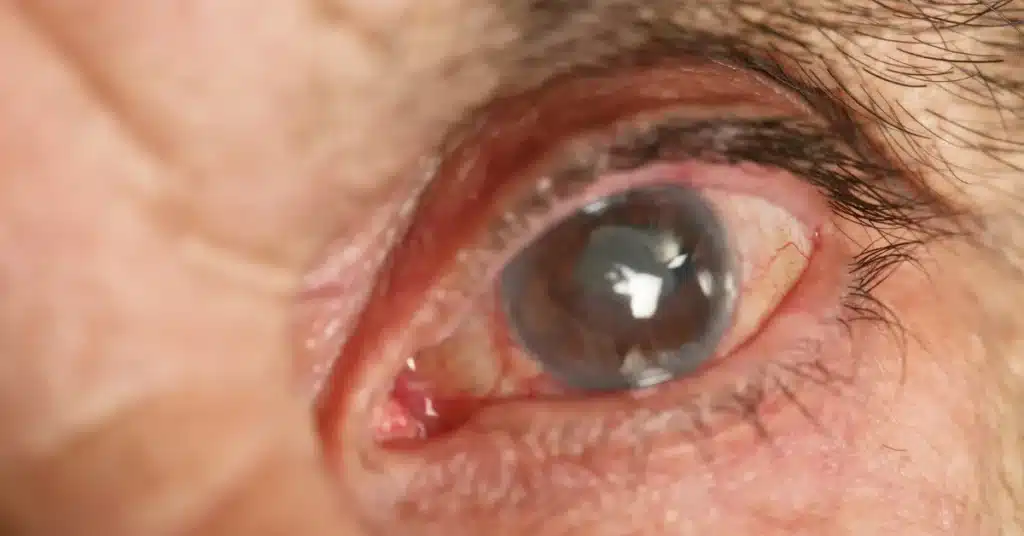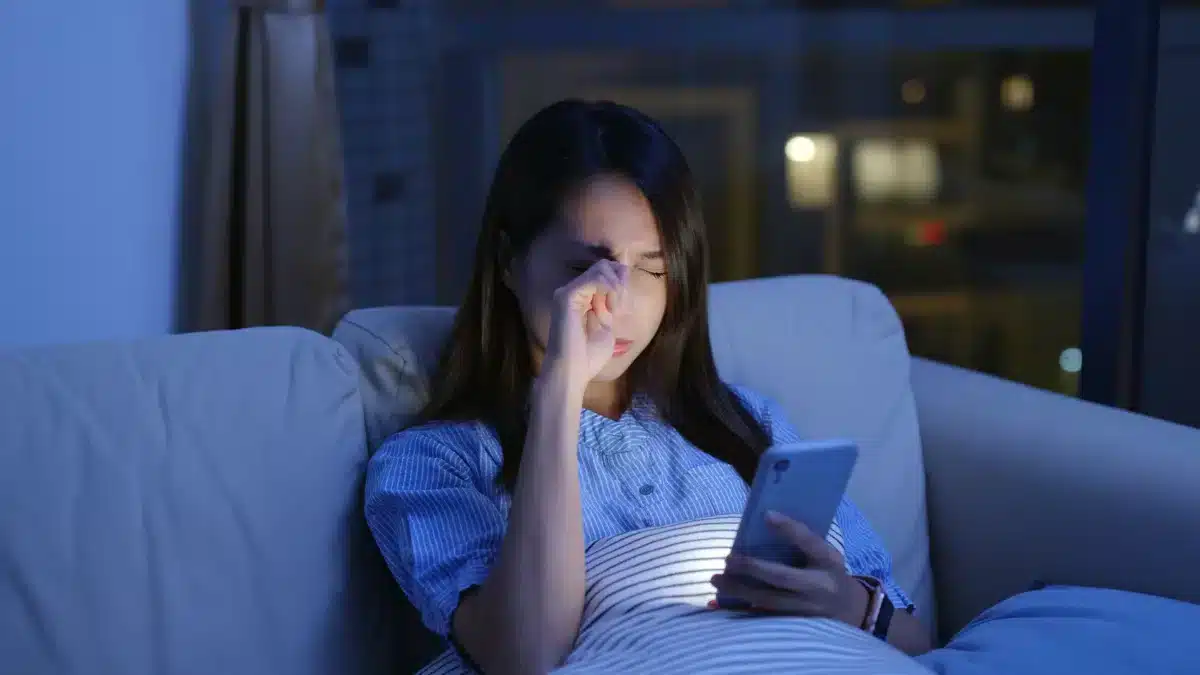Breaking the Mystery of Dry Eyes at Night
Dry eye is common, and a person can have dry regardless of age.
However, people over 50 are more likely to have dry eyes.
Although you can have dry eyes throughout the day, it often worsens during the nighttime.
According to the American Academy of Ophthalmology, around 20 million people in the US have Dry Eye Disease (DED).
Therefore, understanding the main reasons behind dry eyes and what makes them worse at night is crucial to prevent severe complications.
This comprehensive article will help you gain information regarding dry eyes at night and what you can do to treat them.
So, let’s delve into the topic and get an insight into it.
What are dry eyes at night
According to the National Eye Institute, eye dryness happens when your eye’s tear glands do not produce enough tears to moisten your eyes or produce low-quality tears.
It can cause problems in vision and lead to severe eye conditions.
Generally, whenever you blink your eyes, a tear film (layer) covers the surface of your eyes and lubricates it.
The tear film is essential for the following reasons:
- It keeps the eye surface smooth
- Lubricates the eyelids, cornea, and conjunctiva
- Removes the foreign particles that can potentially cause infection
- Preserve your eyes
- Supplying the cornea with nutrients
What are the symptoms of dry eyes at night

Dry eyes happen due to insufficient tears to moisten the eyes, and symptoms can vary from person to person.
However, some of the common dry eye symptoms are mentioned below:
- Red eyes
- Stinging or burning eyes
- Itchy eyes
- Blurry vision
- Teary or watery eyes
- Increased sensitivity to light
- Mucus around the eyes
- Difficulty wearing contact lenses
What causes dry eyes at night
Here are some of the common reasons behind dryness in the eyes at night:
- Nocturnal Lagophthalmos: The condition refers to the inability to close the eyelids while sleeping and can cause dry eyes
- Age: People above the age of 50 years are more likely to develop dry eyes
- Hormonal factors: Women are more prone to dry eyes due to their hormonal changes during pregnancy or after Menopause
- Wearing contact lenses for long: Longterm use of contact lenses, especially at night, can increase the risk of developing dry eyes
- Vitamin A deficiency: Deficiency of Vitamin A can cause Xerophthalmia and result in dry eyes
- Certain medications: Some medications, such as antihistamines, beta-blockers, and antidepressants, can decrease tear production and cause dry eyes
- Allergy: Some allergens (pollen) can trigger inflammatory responses and induce changes in the tear film of eyes, leading to dry eyes
- Meibomian Gland Dysfunction (MGD): The condition when the tear gland does not produce tears with enough oil is called MGD. This can increase the rate of tear film evaporation and lead to dryness in the eyes
- Long-time exposure to screen-based devices: Excessive exposure to gadgets without enough blinking during the day can also dry eyes
Dry eyes treatment
If you have dry eyes at night, you should consult your doctor.
A doctor can prescribe you the following medications to treat your dry eyes and relieve the pain:
- Artificial tears: Lubricating your eyes with artificial tears, especially without preservatives, is important to relieve dryness in your eyes
- Antibiotics or anti-inflammatory drugs: These medications are suitable for people with dry eyes and inflammation
Take a crucial step towards purchasing eye drops from WowRx and relieve eye dryness effectively!
Self-care tips for dry eyes at night

Some self-care tips to incorporate into your daily routine and treat dry eyes naturally include:
- Avoid wearing contact lenses for long periods
- Reduce your screen time or use the 20-20-20 rule to reduce stress on your eyes
- Avoid rubbing your eyes
- Consume a diet rich in Omega-3 fatty acids and Vitamin A
- Use a washcloth to remove dirt from your eyes
- Avoid smoking
- Wear UV protection sunglasses to protect your eyes
- Use air humidifiers
- Keep your home cool and moist
- Blinking regularly to moisten your eyes
When to seek medical attention
Your eyes are precious. Make sure to preserve them.
Dry eyes can indicate severe eye conditions that require medical attention and treatment.
Therefore, if you have dry or itchy eyes at night, consult your doctor and get a routine eye examination to find the underlying cause.
Also, be sure to administer prescribed medications to avoid serious complications.
Read Dry and Itchy Eyes: Understanding Its Causes and Treatment to understand your eye condition deeply.
Conclusion
Dry eyes happen when your tear gland does not produce sufficient tears to moisten and lubricate them.
In such cases, you can face common symptoms, such as red eyes, stinging sensation, increased light sensitivity, and blurry vision.
Age, Vitamin A deficiency, certain medications, MGD, and Nocturnal Lagophthalmos are some of the main causes of dry eyes at night.
You can use prescribed artificial tears, antibiotics, and ointments to treat the eye dryness and preserve your eyes.
You can also incorporate simple self-care or preventive tips to keep your eyes healthy for a long time.
However, you must visit your eye care doctor in case of severity and seek medical treatment to avoid complications.
Frequently Asked Questions
WowRx uses only high-quality sources while writing our articles. Please read our content information policy to know more about how we keep our content reliable and trustworthy.






